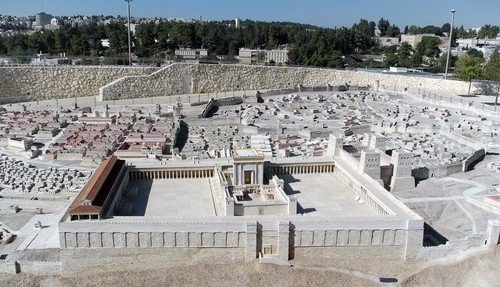
Even the strong need comfort. The seemingly fearless apostle Paul speaks of comfort as something he needed and received continually.In 2 Corinthians 1:3-5 he writes: ‘Blessed be the God and Father of our Lord Jesus Christ, the Father of mercies and God of all comfort, who comforts us in all our tribulation … For as the sufferings of Christ abound in us, so our consolation also abounds through Christ’.
But how did Paul obtain this comfort? ‘Through Christ’, he says, meaning of course, ‘through faith in Christ’. Peter expresses the same confidence when he declares that believers are ‘kept by the power of God through faith for salvation’, so that in the midst of trials they experience great joy in Christ (1 Peter 1:3-9).
Hebrews 11:8-19 records how Abraham also experienced trials and triumphed over them – finding comfort through faith. Consider how faith: (1) looks for the city of God; (2) shares in the patience of God; and (3) rests in the sovereignty of God.
Faith looks for the city of God
At the age of 75, Abraham was no doubt looking forward to a comfortable retirement, surrounded by familiar things and supported by the structured institutions of a renowned ancient civilisation. Yet God called him to surrender such comfort and security and go where he would find no city to dwell in. He and his heirs became nomads, ‘dwelling in tents’ (vv. 8-9). It was like a British pensioner being sent to work as a herdsman in the African bush – not a comfortable prospect at all!
Why would Abraham want to do this? Because God had revealed to his faith an entirely different and unseen prospect – the city of God.

‘By faith Abraham obeyed when he was called to go out to the place which he would receive as an inheritance. And he went out, not knowing where he was going. By faith he dwelt in the land of promise as in a foreign country, dwelling in tents with Isaac and Jacob, the heirs with him of the same promise; for he waited for the city which has foundations, whose builder and maker is God’ (Hebrews 11:8-10).
Although Abraham lived in the promised land, and believed the promises of God regarding that land and his descendants, what he was really looking for was a dwelling place not made with hands – the city of God. This city, eternal in the heavens, would be established by his ultimate descendant, Jesus Christ, through whom all the nations of the earth would be blessed.
Hebrews 11:13-16 confirms that this spiritual prospect is common to all who possess faith: ‘These all died in faith, not having received the promises, but having seen them afar off were assured of them, embraced them and confessed that they were strangers and pilgrims on the earth. For those who say such things declare plainly that they seek a homeland … they desire a better, that is, a heavenly country. Therefore God is not ashamed to be called their God, for he has prepared a city for them’.

We too are strangers and pilgrims
This has clear application to believers today. Firstly, the born-again Christian is called out of a world that is ignorant of God and into a lifelong journey that leads most certainly to heaven and glory. The true believer cannot, therefore, love the world because he has experienced the expulsive power of another love – ‘the love of the Father’ (1 John 2:15-17). The godless world is ‘passing away’, says John, along with its desires and rewards, ‘but he who does the will of God remains for ever’.
Peter adds, ‘Beloved, I beg you as sojourners and pilgrims, abstain from fleshly lusts which war against the soul’ (1 Peter 2:11). Christians need to understand that they are ‘strangers and pilgrims’ – this world is not our homeland. ‘For here we have no continuing city, but we seek the one to come’ (Hebrews 13:14). ‘Our citizenship’, says Paul, ‘is in heaven’ not upon earth (Philippians 3:20).
But we must also understand the implications of this situation. The full quote from Hebrews 13:13-14 is, ‘Let us go forth to [Christ] outside the camp bearing his reproach, for here we have no continuing city …’
It is not easy to live as strangers and pilgrims in the ungodly society of this world. Certain things must be left behind when we follow Christ, such as the ‘pleasures of sin’ and the applause of men. Other things must be embraced, namely, ‘the reproach of Christ’ which signifies our rejection by the world and can mean bitter persecution.
We cannot love both God and mammon – to follow Christ involves surrendering worldly desires, enjoyments and ambitions and being identified with the people of God and the gospel of God’s free grace in Christ. A clear-cut choice must be made.
The glory of God’s city
Abraham was comforted in his pilgrim life by the prospect of the city that has foundations whose builder and maker (architect) is God. And here is the amazing thing. Unlike Abraham and other OT saints, those who live under the new covenant in Christ’s blood have already entered that city and begun to enjoy its benefits and blessings!
The OT saints looked forward to this city and longed for it. But we, says Hebrews 12:18-24, have already come to it! ‘For you have not come to the mountain that may be touched and that burned with fire [that is, to the Mosaic covenant] … But you have come to Mount Zion and to the city of the living God, the heavenly Jerusalem, to an innumerable company of angels, to the general assembly and church of the firstborn who are registered in heaven, to God the Judge of all, to the spirits of just men made perfect, to Jesus the Mediator of the new covenant, and to the blood of sprinkling that speaks better things than that of Abel’.
The city of God has more dimensions than we can consider here but, put simply, this city of the living God is none other than the church of Jesus Christ – which we experience now as the church militant here on earth but will one day know as the glorified church, prepared as a bride for her husband (Revelation 21:9-11).
Do we treasure the city of God as we should? Or are we so preoccupied with the affairs of this world that we forget where we live, spiritually speaking? Do we find comfort as by faith we behold this city – this spiritual homeland – which is no longer ‘afar off’ as it was for Abraham but which has come near through the accomplished work of Christ and the application of that work by the Holy Spirit?
Are we willing to follow Paul who could write, ‘I now rejoice in my sufferings for you, and fill up in my flesh what is lacking in the afflictions of Christ, for the sake of His body, which is the church …’ (Colossians 1:24)?
Are we prepared to suffer ‘the reproach of Christ’ for the sake of the city which has an eternal foundation – namely, the person and work of Christ? Then we shall be comforted indeed, as by faith we recognise the glory of the church for which we labour, even in its earthly imperfection.
Faith may waver
Abraham’s second great trial lay in the fact that God’s promise of a son was long delayed. He had believed the promise and his faith was counted for righteousness (Genesis 15:3-6) – but Abraham was human! As the years passed and the possibility of having children receded, he was tempted by doubts and even disillusionment. Such problems sometimes afflict even the best of God’s servants, not least those who minister God’s word.

Amid their rising doubts, Abraham and Sarah felt that God needed a helping hand to keep his promise. They came up with the idea of fulfilling God’s promise themselves, by having Abraham take Hagar, Sarah’s maid, as a second wife (Genesis 16:1-6).
And, of course, it worked! Abraham had a son, Ishmael. But he was the wrong son and the whole episode brought endless trouble – even to this day when the descendants of Isaac and Ishmael remain in conflict.
Now Abraham needed double comfort – firstly, concerning forgiveness for his sin of unbelief and, secondly, concerning the continued delay in the fulfilment of God’s promise! But though a sinner he obtained such comfort through his faith. ‘For if our heart condemns us, God is greater than our heart, and knows all things’ (1 John 3:20-21).
Faith shares in the patience of God
Concerning the delay, Abraham and Sarah learned, the hard way, to trust God’s promise and be patient. But eventually they did so learn, for ‘by faith Sarah herself also received strength to conceive seed, and she bore a child when she was past the age, because she judged him faithful who had promised’ (v.11).
God is patient – ‘The Lord is … longsuffering toward us, not willing that any should perish but that all should come to repentance’ (2 Peter 3:9). He is ‘the God of patience and comfort’ (Romans 15:5). Like Abraham and Sarah, we must learn to enter into his patience, exercising by faith what Paul calls the ‘patience of hope’ for which he so warmly commends the Thessalonians – ‘so that we ourselves boast of you among the churches of God for your patience and faith in all your persecutions and tribulations that you endure’ (1 Thessalonians 1:3; 2 Thessalonians 1:4).
The application to ourselves is clear and needs little development. Paul exhorts, ‘Therefore, my beloved brethren, be steadfast, immovable, always abounding in the work of the Lord, knowing that your labour is not in vain in the Lord’.(1 Corinthians 15:57-58). And again, ‘let us not grow weary while doing good, for in due season we shall reap if we do not lose heart’ (Galatians 6:9).
How do we know that our work is never in vain? How can we be sure that we shall reap? By faith, of course – for these scriptures are the promises of almighty God.

Faith rests in the sovereignty of God
My final point is that faith rests in the sovereignty of God. We read, ‘By faith Abraham, when he was tested, offered up Isaac, and he who had received the promises offered up his only begotten son – of whom it was said, “In Isaac your seed shall be called” – concluding that God was able to raise him up even from the dead, from which he also received him in a figurative sense’ (vv. 17-19).
This surely was Abraham’s supreme trial – to sacrifice the heir on whose survival all God’s promises depended! Yet this would also be the occasion when faith triumphed over doubt and despair. When the test was over the Lord himself testified, saying ‘now I know that you fear God, since you have not withheld your son, your only [true] son, from me’ (Genesis 22:12).
Abraham submitted to God’s sovereignty in the matter. How do we know? Because he made no protest. Abraham was quite prepared to argue with God on other occasions. When the Lord declared his intention to destroy Sodom and Gomorrah, Abraham protested vigorously lest some righteous persons might perish in the process (Genesis 18:20-33)
Again, when God said, ‘I am your shield, your exceeding great reward’, Abraham immediately complained that he could receive no blessing without a natural heir and pleaded with God to accept Ishmael as his true son (Genesis 15:1-4).
Why then, years later, did Abraham not complain or plead with God for Isaac to be spared? Why did he rise the very next morning and set off on his deadly errand, not even attempting to delay or argue with God?
Faith submits
There is a simple answer – Abraham’s faith taught him that no amount of resistance to God’s will can change God’s purpose. Faith submits to God because it knows that he is sovereign – ‘He does according to his will in the army of heaven and among the inhabitants of the earth. No one can restrain his hand or say to him, “what have you done?”’ (Daniel 4:35; see also Romans 11:18-21; Ephesians 1:11).
However, faith’s submission is not stoical but joyful, because faith also understands ‘that all things work together for good to those who love God, to those who are the called according to his purpose’ (Romans 8:28).
God could not tell Abraham in advance what the outcome of his submission would be, otherwise there would have been no test. But Abraham’s trust in the goodness of God and in the immutability of his promises led him to a clear and comforting conclusion.
Yes, he would submit to the sovereign will of God and slay his son. But the sovereign God, who has total power over life and death, would then raise Isaac from the dead and so keep the promises he had made. And so it was, figuratively speaking.
There is no greater comfort than to recognise and submit to the sovereignty of God in all things – our circumstances, our past, our future, our health, and all the providences of God. Only faith can bring this comfort as we recognise both the greatness and the goodness of the God who has made us his children through the gospel and is thus our heavenly Father – the Father of mercies and the God of all comfort.
The application to ourselves is clear and needs little development. Paul exhorts, ‘Therefore, my beloved brethren, be steadfast, immovable, always abounding in the work of the Lord, knowing that your labour is not in vain in the Lord’.(1 Corinthians 15:57-58). And again, ‘let us not grow weary while doing good, for in due season we shall reap if we do not lose heart’ (Galatians 6:9).
How do we know that our work is never in vain? How can we be sure that we shall reap? By faith, of course – for these scriptures are the promises of almighty God.



